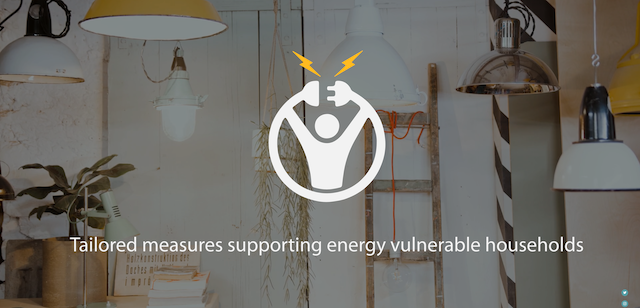Energy poverty is a significant issue impacting households across Europe who are unable to adequately heat (or cool) their homes. The problem is caused by combination of high energy prices, low household incomes, inefficient buildings and appliances, and specific household energy needs.
A new three-year project called EnergyMeasures: ‘Tailored measures supporting energy vulnerable households’ aims to contribute to addressing this issue. EnergyMeasures, funded by the European Commission’s Horizon 2020 programme (grant no. 894759), brings together twelve partners from across Europe (Austria, Belgium, Bulgaria, Ireland, Netherlands, North Macedonia, Poland and United Kingdom) to counter energy poverty.
Leveraging existing relationships with energy poor households, EnergyMeasures partners will recruit households to participate in household energy programmes. Recruited householders will be provided with low-cost energy measures and facilitated to change their energy-related behaviours and practices through an approach that both takes account of the nature of their dwelling and the way their live their lives.
In addition, the project will work to address structural issues which combine to trap households in energy poverty. It will assess how current institutional contexts affect possibilities for alleviating energy vulnerability in participating countries, and develop and support the implementation of appropriate policy and practice measures.
‘An exciting element of this project, is how it will apply insights into the intersections between energy use, socio- economic privilege and gender to help energy poor households better understand and potentially change the way they relate to, and use energy’ explains the project coordinator, Dr Niall Dunphy from University College Cork, Ireland.
The project kick-off meeting was held via video conference on 15 September 2020, where partners discussed and agreed the project work plan. Further information about the project can be sourced from our web site www.energymeasures.eu and by following us on Twitter on @NRGMeasures
